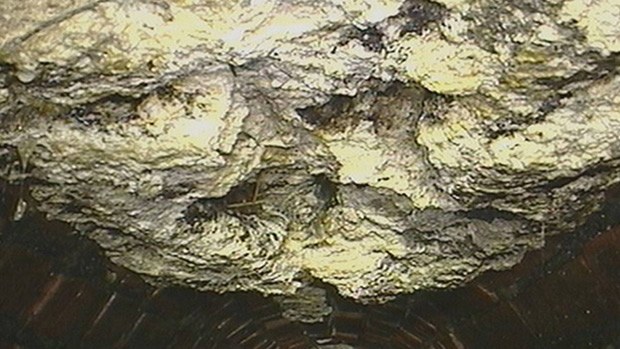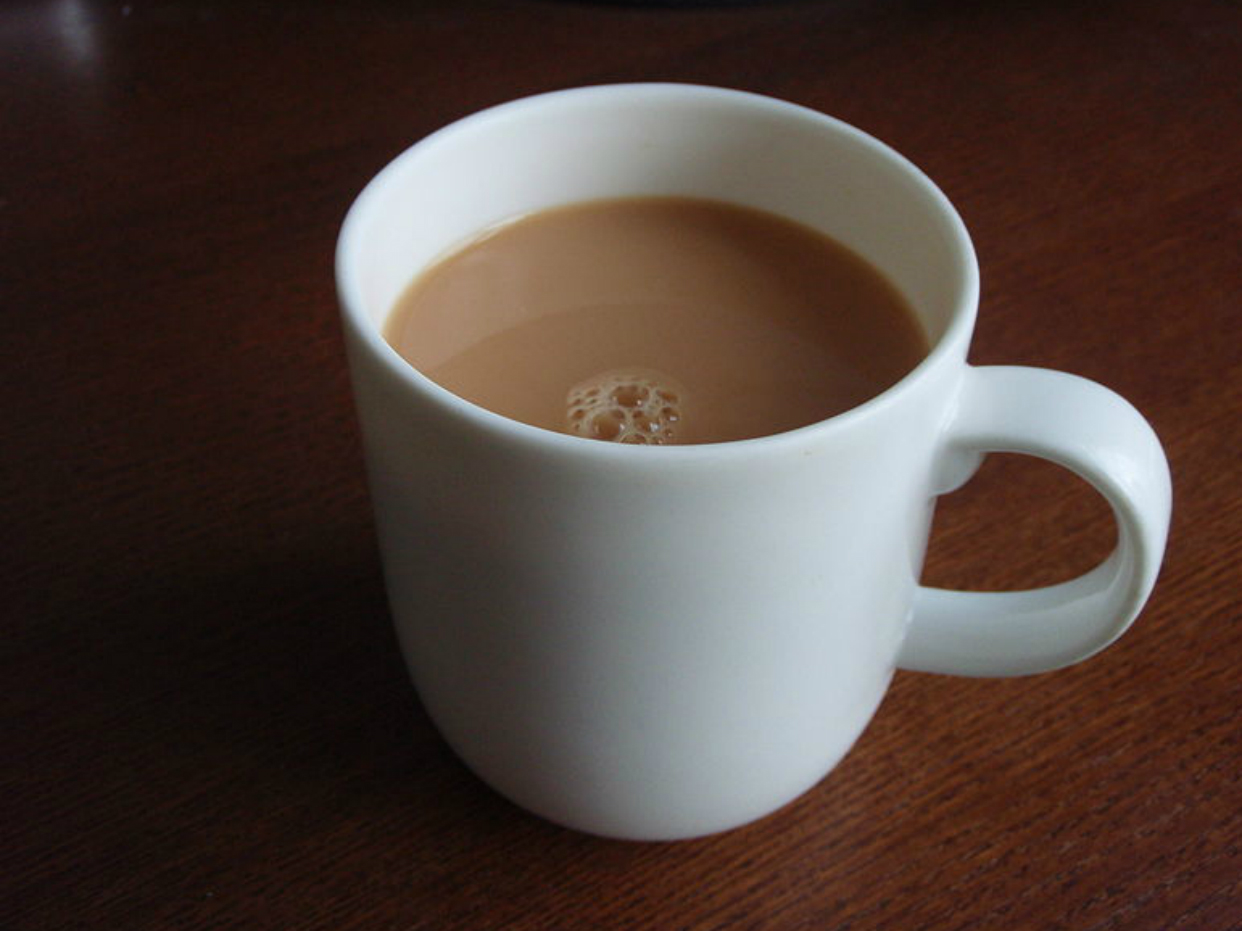What is inside London’s fatbergs?
Potentially fatal cocktail of bacteria, gym supplements and wet wipes blocking city sewers, study shows

A free daily email with the biggest news stories of the day – and the best features from TheWeek.com
You are now subscribed
Your newsletter sign-up was successful
An analysis of one of the large pieces of congealed mass clogging up Britain’s sewers has revealed worrying levels of potentially infectious bacteria in the so-called fatberg.
The study by Channel 4 in conjunction with Thames Water looked at the contents of a supersize fatberg found beneath the streets of central London.
The forensic analysis “revealed that cooking fat is the biggest contributor to the crisis, making up nearly 90% of the sample”, says The Guardian. Cooked fat mixes with calcium in the water and is transformed through a chemical reaction into the pale chalky matter that makes up the majority of the fatberg.
The Week
Escape your echo chamber. Get the facts behind the news, plus analysis from multiple perspectives.

Sign up for The Week's Free Newsletters
From our morning news briefing to a weekly Good News Newsletter, get the best of The Week delivered directly to your inbox.
From our morning news briefing to a weekly Good News Newsletter, get the best of The Week delivered directly to your inbox.
A fatberg “functions as a kind of collective self-portrait”, says The New York Times. And, interestingly, the London fatberg contained a higher concentration of gym and bodybuilding supplements than of recreational drugs such as cocaine and MDMA.
“If anyone was in any doubt about our obsession with body image, significant levels [were] found of gym and weight-loss supplements, including ostarine, a muscle-building agent that is illegal in Britain and is on the World Anti-Doping Agency’s prohibited list,” says The Times’s Damian Whitworth.
Worryingly, the autopsy also found potentially infectious bacteria including listeria, campylobacter and E. coli thriving in the fatberg.
This not only poses a problem for those tasked with the unblocking process but “also to the public in the event of a blockage, as contents of the sewers could come back up through domestic or commercial pipes causing flooding to homes and businesses”, says The Guardian.
A free daily email with the biggest news stories of the day – and the best features from TheWeek.com
Thames Water waste networks manager Alex Saunders told the newspaper: “We and other water companies are facing a constant battle to keep the nation’s sewers free from fatbergs and other blockages.”
The UK’s love of eating out is key to the rise of the fatberg, according to Andy Drinkwater, a civil engineering expert at the Water Research Centre (WRc) consultancy firm.
“The amount of fat going into sewers depends on the wealth of the nation and how much people go out to eat in restaurants,” Drinkwater told The Times.
Another key issue in the formation of fatbergs is the increasing use of wet wipes.
“We never got problems with wet wipes blocking the sewers 30 years ago. It’s only in the past 20 years it has really become a problem because of a modern convenience invention,” Drinkwater said.
“There is a wet wipe for everything, and because it is not much bigger than a piece of toilet paper there is that perception that you can just fling it down the loo and forget about it, but of course that is not correct, because a lot of them don’t break up.”
According to The Guardian, the battle to remove fatbergs “costs an estimated £80m a year, which is paid by utility customers via their water bills”.
-
 Local elections 2026: where are they and who is expected to win?
Local elections 2026: where are they and who is expected to win?The Explainer Labour is braced for heavy losses and U-turn on postponing some council elections hasn’t helped the party’s prospects
-
 6 of the world’s most accessible destinations
6 of the world’s most accessible destinationsThe Week Recommends Experience all of Berlin, Singapore and Sydney
-
 How the FCC’s ‘equal time’ rule works
How the FCC’s ‘equal time’ rule worksIn the Spotlight The law is at the heart of the Colbert-CBS conflict
-
 Anger over dunkable biscuit claim
Anger over dunkable biscuit claimfeature And other stories from the stranger side of life
-
 Otter accused of killing relocated Loch Lomond beavers
Otter accused of killing relocated Loch Lomond beaversSpeed Read The dead beaver kits were moved from Tayside to RSPB Scotland reserve last month
-
 Home Office worker accused of spiking mistress’s drink with abortion drug
Home Office worker accused of spiking mistress’s drink with abortion drugSpeed Read Darren Burke had failed to convince his girlfriend to terminate pregnancy
-
 In hock to Moscow: exploring Germany’s woeful energy policy
In hock to Moscow: exploring Germany’s woeful energy policySpeed Read Don’t expect Berlin to wean itself off Russian gas any time soon
-
 Were Covid restrictions dropped too soon?
Were Covid restrictions dropped too soon?Speed Read ‘Living with Covid’ is already proving problematic – just look at the travel chaos this week
-
 Inclusive Britain: a new strategy for tackling racism in the UK
Inclusive Britain: a new strategy for tackling racism in the UKSpeed Read Government has revealed action plan setting out 74 steps that ministers will take
-
 Sandy Hook families vs. Remington: a small victory over the gunmakers
Sandy Hook families vs. Remington: a small victory over the gunmakersSpeed Read Last week the families settled a lawsuit for $73m against the manufacturer
-
 Farmers vs. walkers: the battle over ‘Britain’s green and pleasant land’
Farmers vs. walkers: the battle over ‘Britain’s green and pleasant land’Speed Read Updated Countryside Code tells farmers: ‘be nice, say hello, share the space’